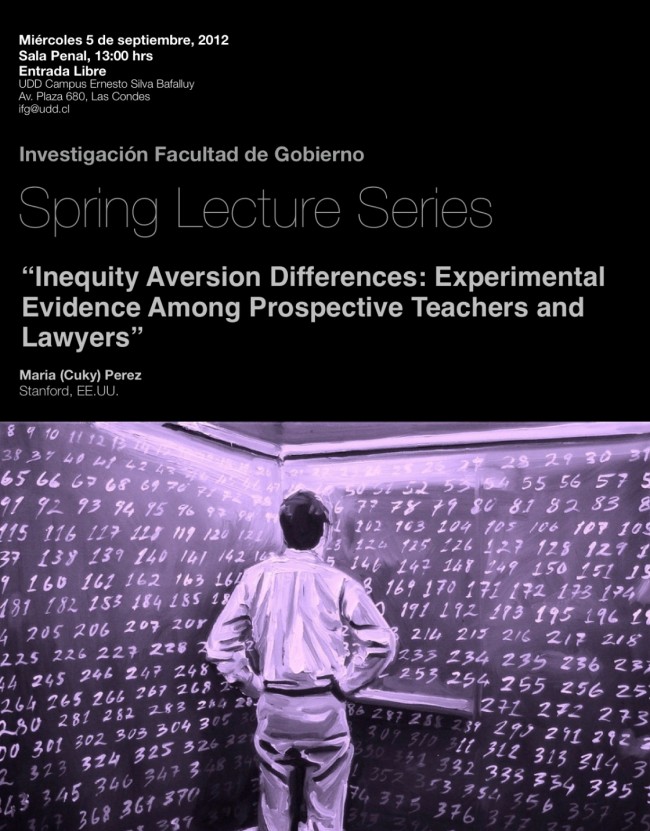“Inequity Aversion Differences: Experimental Evidence Among Prospective Teachers and Lawyers”. Charla de Maria (Cuky) Perez
Tuesday, 28 August, 2012 | CALENDAR, EVENTS(spanish version only)
Maria (Cuky) Perez, es profesora de políticas públicas en la escuela de gobierno de la Universidad de Washington (Evans School of Public Affairs). Completó su doctorado en Economía de la Educación en Stanford en el año 2012. Se recibió de economista en la Universidad Catolica, y completó un MA en Economía en Stanford. Su disertación se centró en el estudio de los efectos teóricos y empíricos del pago por desempeño a profesores.
CHARLA “Inequity Aversion Differences: Experimental Evidence Among Prospective Teachers and Lawyers”.
Cuándo: Miércoles 05 de septiembre 13:00 hrs.
Dónde: Sala Penal, UDD Campus Ernesto Silva Bafalluy, Av. La Plaza 680, Las Condes
Idioma: Español
Abstract: Merit pay for teachers is one of the most contentious issues in the K-12 education policy arena. Proponents of merit pay suggest that rewarding teachers for student gains will improve the quality of the teacher workforce. The literature has focused largely on how merit pay affects teacher motivation, and has not investigated the mechanism through which merit pay would change the composition of the teaching force. Presumably, merit pay systems result in highly effective teachers receiving higher pay than ineffective teachers, encouraging the desired pattern of retention and turnover. In addition, it is argued that tying pay to performance will attract new individuals to enter the profession who would not have otherwise done so under the uniform salary scheme, generating a larger pool of teachers from which to hire. These theoretical predictions rest on the basic assumption that highly effective teachers are neutral when it comes to their preferences for uncertain and competitive pay schemes, and are not averse to unequal outcomes among their peers. In this study, I conduct a framed field experiment to investigate how risk aversion, inequity aversion and preferences toward competition differed among highly effective prospective teachers and lawyers. I find that prospective female teachers and lawyers do not differ in their level of risk aversion. However, female teachers had a much stronger aversion to inequity and were less likely to generate a competitive environment than female lawyers that were planning a career in private practice. Interestingly, there were no statistical differences between prospective female teachers and lawyers who planned careers in public practice.





